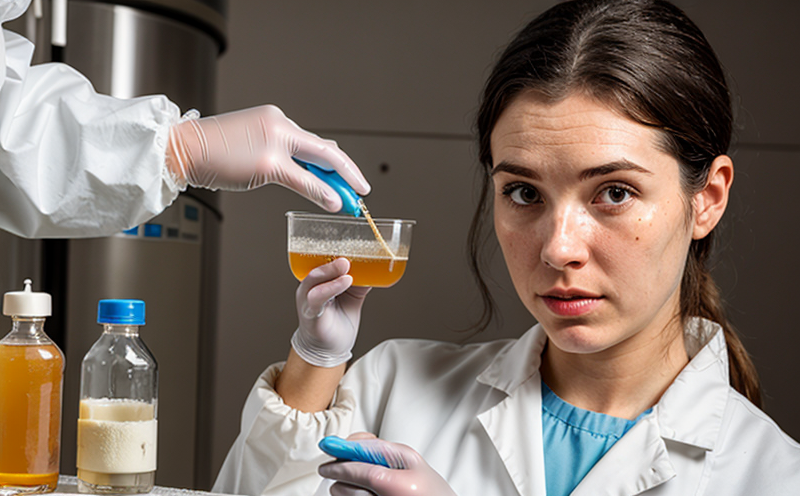UNEP Guidelines Mycological Testing in Environmental Samples
The United Nations Environment Programme (UNEP) has established guidelines to support environmental mycology testing. This service focuses on identifying molds, yeasts, and fungi present in various environmental samples using UNEP's recommended protocols.
Mold, yeast, and fungal growth can have significant implications for human health and the environment. These microorganisms are prevalent in soil, air, water, and building materials. In indoor environments, their presence can lead to respiratory issues, allergies, and structural decay if not properly managed. The UNEP guidelines provide a robust framework to ensure accurate identification of these organisms.
The testing process involves collecting environmental samples such as dust, air filters, or surface swabs from potential sources like buildings, industrial sites, or natural ecosystems. These samples are then analyzed using advanced microbiological techniques to identify the species present. The service includes both qualitative and quantitative assessments to determine the levels of contamination.
Using UNEP's guidelines ensures compliance with international standards such as ISO 14644 for cleanroom environments and ASTM E2339 for mold testing in building materials. These protocols are designed to provide reliable results that can inform remediation strategies, product development, and environmental monitoring programs.
Our team of experts uses cutting-edge technology including scanning electron microscopy (SEM), DNA sequencing, and culture-based methods to ensure precise identification of microorganisms. This approach allows us to differentiate between harmful and non-harmful species, providing a comprehensive understanding of the microbial community in your sample.
- Scanning Electron Microscopy (SEM) for detailed morphological analysis
- DNA sequencing for accurate species identification
- Culture-based methods to assess viability and growth potential
The UNEEP guidelines also emphasize the importance of environmental impact assessments. By identifying specific molds, yeasts, and fungi in your sample, we can provide insights into the ecological significance of these organisms within their respective environments.
Our service is particularly useful for quality managers, compliance officers, R&D engineers, and procurement specialists who need to ensure that their operations are environmentally responsible and meet regulatory requirements. By adhering to UNEP's guidelines, our clients can make informed decisions about the management of mold, yeast, and fungal contamination.
In summary, this service offers a comprehensive approach to identifying molds, yeasts, and fungi in environmental samples using UNEP's recommended protocols. This ensures accurate and reliable results that are essential for maintaining public health and protecting the environment.
Scope and Methodology
| Sample Type | Treatment Process | Analytical Techniques |
|---|---|---|
| Dust samples | sieving, washing, and concentration | SEM, DNA sequencing |
| Air filters | extraction of spores using ethanol | Culture-based methods, SEM |
| Surface swabs | soil extraction followed by washing | DNA sequencing, culture-based methods |
| Testing Parameters | Acceptance Criteria |
|---|---|
| Mold species identification | ≥95% accuracy |
| Fungal spore count | +/- 10% variation from actual count |
| Detection limit of fungal DNA | ≤10 ng/μL |
The testing process begins with the collection of environmental samples, which are then prepared according to UNEP's guidelines. The samples undergo various treatments such as sieving, washing, and concentration before being analyzed using advanced analytical techniques.
Our team of experts uses a combination of scanning electron microscopy (SEM), DNA sequencing, and culture-based methods to ensure accurate identification of microorganisms. This approach allows us to differentiate between harmful and non-harmful species, providing a comprehensive understanding of the microbial community in your sample.
The acceptance criteria for this service are based on international standards such as ISO 14644 and ASTM E2339. These standards ensure that our results are reliable and consistent with industry best practices.
Eurolab Advantages
Our team of experts is dedicated to providing high-quality mycological testing services using UNEP guidelines. With years of experience in the field, we have developed a reputation for accuracy, reliability, and consistency. Our state-of-the-art facilities and advanced technology allow us to offer comprehensive analysis of environmental samples.
We are committed to delivering accurate results that meet or exceed industry standards. Our team of experts is available 24/7 to provide support and guidance throughout the testing process. We also offer a range of additional services, including remediation strategies and training programs for your staff.
Our clients benefit from our extensive network of contacts in the industry, allowing us to stay up-to-date with the latest developments in mycological research and technology. This ensures that we can provide you with the most accurate and relevant information possible.





